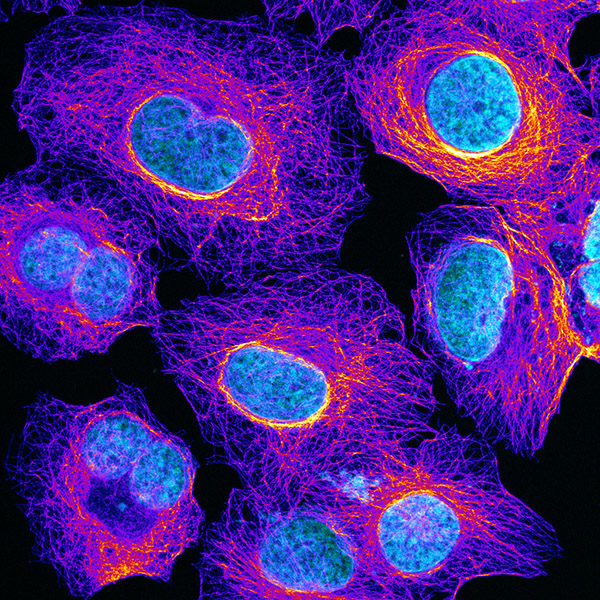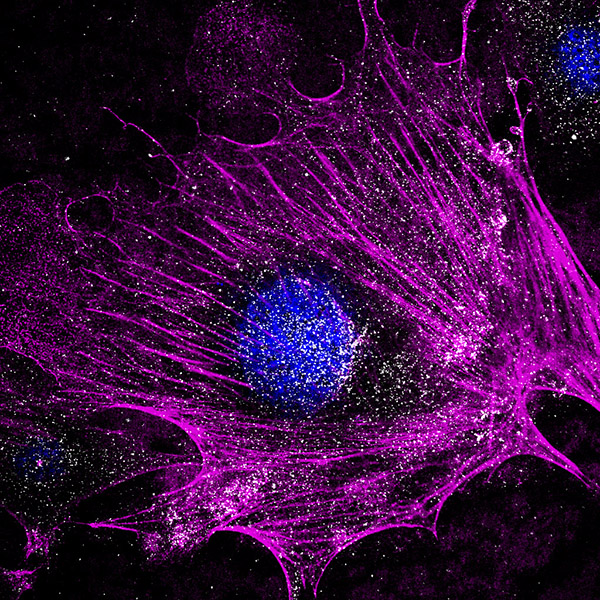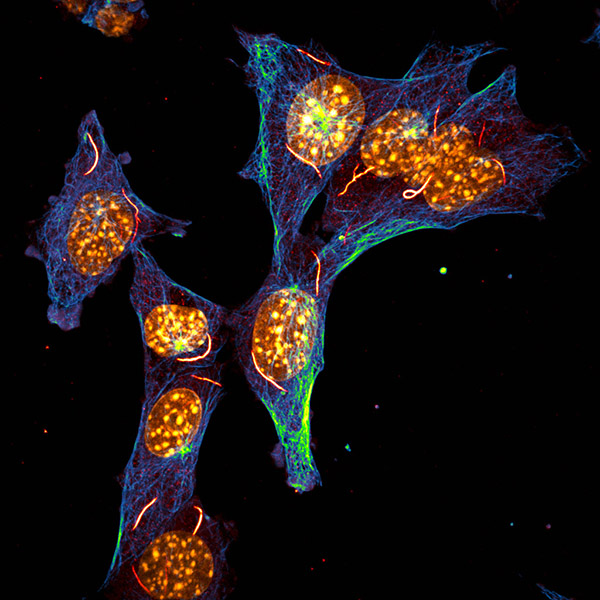High Risk, High Reward
The pursuit of game-changing science.

Every four months, 30 scientists and physicians from around the country gather for a 2-day intellectual marathon that decides the fate of cancer research across our nation. We discuss, critique, and defend the ideas of our peers to determine whose research we think will have the greatest impact on beating cancer. These proposals that we review for the National Institutes of Health are enormous undertakings, where even to be in contention, years of supportive research and early-stage funding have already been completed.
At Winship, we specialize in these early investments that support high risk, potentially paradigm-shifting research when it is just an idea. One way we do this is through Winship Invest$, a peer-reviewed program designed to fund novel, innovative research. We look for adventurous and unique research ideas early on that could impact our understanding, prevention, treatment, or diagnosis of cancer. For me personally, this is research that is not only moving the field forward, but is actually creating the field. Questions that are unanswered, and perhaps have never been asked before, fall into this category. These answers will drive research not only at Winship, but in laboratories around the country. In this way, groundbreaking ideas become a collective effort to spawn new insights into cancer that can guide clinical practice.
A great example of this is a unique partnership formed by Winship researcher Larry Boise and Winship clinician Sagar Lonial. Over the past few years, these two multiple myeloma experts have teamed up to decipher why patients who had what was considered a "good" prognosis, unexpectedly died early in their treatment. Using philanthropic funds from its annual Winship Win the Fight 5K event, Winship supported this research when it was an idea drawn on a whiteboard outside of Boise's office. This early investment supported a genomics expert, Ben Barwick, who sifted through huge clinical and molecular datasets on these patients. This effort paid off and the team ended up discovering a new marker of poor prognosis in patients previously thought to have that "good" prognosis. In the future, doctors could determine which patients test positive for the marker and be treated differently with the hope of prolonging their lives.
Part of our mission at Winship is to lessen the burden of cancer through this type of high risk/high reward research. I know I speak for many of us that these big ideas are created out of a passion for science, passion for research, and, most importantly, passion to make a difference in the lives of patients. We know, however, that passion does not mean success and that some, if not many, of these ideas will fail. But that one idea that has the potential to be a game changer is motivational and keeps us coming back for more. It is a difficult feeling to explain but the closest analogy is perhaps related to golf: research is similar to hitting golf balls into the lake, into the weeds, into the sand trap, or not even hitting the ball at all (I'm very experienced with this). But, that great one, the one shot that feels and sounds perfect, that shot keeps golfers coming back for more and ready to play again. In science, we have many misses, but it is the great ones that we all strive to create, be a part of, and deliver to patients.
State-of-the-art light microscopy images produced in the Integrated Cellular Imaging Core, a shared resource. Young researchers from Winship labs competed with each other to come up with these unique images.

Emily Summerbell won first place for imaging tubulin (purple) and DNA (blue) in cancer cells.

Brandon Ware got second place for staining a stellate cell isolated from a pancreatic tumor.

Cara Schiavon was a runner-up for showing structures in mouse embryo fibroblasts.




